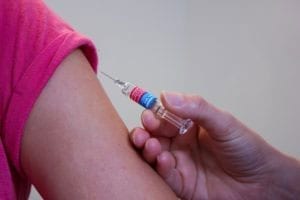According to a story from the Irish Examiner, young people in Ireland are encouraged to watch out for signs of meningitis following an abnormal cluster of fatalities and serious illness linked to septicemia and meningococcal meningitis. Often a disease associated with children, three of the four cases that are being investigated were found in young adults. While it’s unclear what has caused the cluster, some experts cite increased interactions as the COVID pandemic wanes.
About Meningitis
Meningitis is a disease in which the protective membranes around the spinal cord and brain, known as the meninges, become inflamed. Because of how close the inflammation is to the spine and brain, the illness constitutes a medical emergency that must be addressed in a timely fashion. Meningitis can appear from a diverse array of causes such as certain drugs and infection from certain microbes, such as fungi, viruses, and bacteria. Characteristic symptoms of the disease include headaches, stiff neck, and an altered state of consciousness. Other symptoms include fever, intolerance of loud noises and light, and vomiting. Without prompt treatment, the infection can inflict long-term problems such as cognitive disability, deafness, and epilepsy. Treatment depends on the cause, but if the disease is suspected, antibiotics are recommended as soon as possible, even if the definite diagnosis hasn’t been confirmed. In the Western world, bacterial meningitis is rare. To learn more about meningitis, click here.
Awareness Needed
“We want to get a message out to people in this late teen group, maybe starting college and the message is really about knowing the signs of meningitis and knowing to act when you see them.” – Dr. Kenneth Beatty, Department of Public Health Mid-West public health specialist
The disease usually isn’t dangerous if it is detected in time, but it can become life-threatening if it enters the blood, leading to septicemia. This complication is much more difficult to treat. There’s a meningitis B vaccine that was introduced starting on 2016, but for many of the younger adult cases that are currently being investigated, their generation would be too old to have gotten the vaccine as a child.








